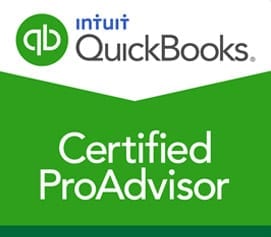The fallout from the COVID-19 pandemic has left millions of Americans unemployed, wondering what comes next. But what if you could turn this setback into an opportunity? That’s exactly what over three million Americans are doing by starting their own businesses.
In 2020, Americans are starting their own businesses at the fastest rate in a decade. Why is that? Some of these new business owners are entrepreneurs who’ve identified new opportunity zones in America’s post-COVID landscape. Others are choosing to self-employ, stringing together gig-work after losing their primary employer.
If you think you’re ready to take the risk and start a new business yourself, it’s easier to begin than you might think. Once you have that million-dollar idea in mind, here are six essential steps that will ensure you get off on the right foot:
Create an LLC
The early stages of starting your business are all about creating separation from yourself as a person and your business as an entity. Establishing a Limited Liability Company (LLC) is likely your best option.
LLCs offer more benefits to small business owners than any other entity class. Here are just a few:
- They are the most flexible – an LLC can be used for any purpose, whether you’re a contractor doing gig work or a startup founder seeking investors.
- An LLC will minimize your tax burden, allowing you to accrue tax deductions and keep your personal income tax rate at bay.
- Most importantly, an LLC protects you from any legal liability in association with your business. If someone sues, they’re suing the LLC, not you – so you can’t be held personally responsible.
Visit your state government’s website for an easy explanation on how to create an LLC in your state. And, of course, you can always contact Boxelder Consulting’s licensed professionals to help establish your new business entity.
Attach an EIN to Your LLC
An Employment Identification Number (EIN) allows the IRS to identify your business as an entity for tax purposes. This nine-digit federal identification number is unique to your business and will be associated with your business bank account (see next step), rather than your personal bank account.
This means that your Social Security Number (SSN) will not be attached to your business. Creating an EIN is another essential step in separating yourself from your business as an entity.
Applying for an EIN is very easy and can be done through the IRS website.

Open a Business Bank Account
Next, it’s time to open a separate bank account for your LLC. You should never run a business through your personal bank account because:
- It’s not practical,
- It could heavily increase your tax liability, and
- It could put you in danger of an audit from the IRS.
A separate bank account keeps your personal and business funds from commingling, allowing for easier day-to-day operation of your business and protecting you from personal and financial liability.
Once you’ve created your LLC, attached an EIN, and opened your business bank account, congratulations! You’ve created the separation you need. But you’re still not quite ready to open for business.
Create a QuickBooks Account

Every business needs a way to handle daily bookkeeping and keep track of finances. QuickBooks is the easiest, most reliable, and cost-effective accounting software around.
QuickBooks requires little accounting experience to operate and is affordably priced so that anybody can manage their accounts on their own. The intuitive software allows you to access your business’s financial data wherever and whenever, create and track invoices, and pay bills on time. It also lets you create customizable balance sheets, profit and loss statements, cash flow statements, and other graphic reports of your business performance.
These resources will prove essential if you apply for a business loan or pitch to investors. Thus, signing up for QuickBooks is a no-brainer for anyone starting their own business.
Boxelder Bookkeeping is a licensed QB advisor and is also available for full-service bookkeeping if you prefer to let one of our experienced professionals manage your books. Let us handle the day-to-day bookkeeping, so you can focus on what you do best: growing your business.
Understand Your Tax Exposure and Make Your Estimated Tax Payments
Keeping track of your bills is hard enough as an individual. As a business owner, it can be downright overwhelming — if you aren’t organized. It gets easier when you start to understand your liabilities and build good processes to stay on top of them.
Start planning for tax season early. It’s far too easy to fall into debt with the IRS if you don’t plan ahead and stay on top of your payments. Set aside roughly 20 percent of your income, calculate your expected tax liability, and make quarterly estimated tax payments so that Tax Day doesn’t catch you off guard.
If you’ve always been a W-2 employee, you’re probably not used to making estimated tax payments since your employer would have withheld taxes for you throughout the year. Now, it’s your job to be ahead of the game. Here you’ll find some additional details to help you make Estimated Tax Payments.
Consider Hiring Boxelder Consulting
Now that you’re ready to start your new business, know that you don’t have to do it alone. Boxelder Consulting is ready to help you at every step of the process.
Our passionate team of tax professionals, CPAs, and business consultants will use their extensive experience to optimize the efficiency and profitability of your business. Running your own business can be stressful. Our integrated approach to tax relief, accounting, business consulting, and bookkeeping can help you rest easy, knowing that your business is running smoothly.

